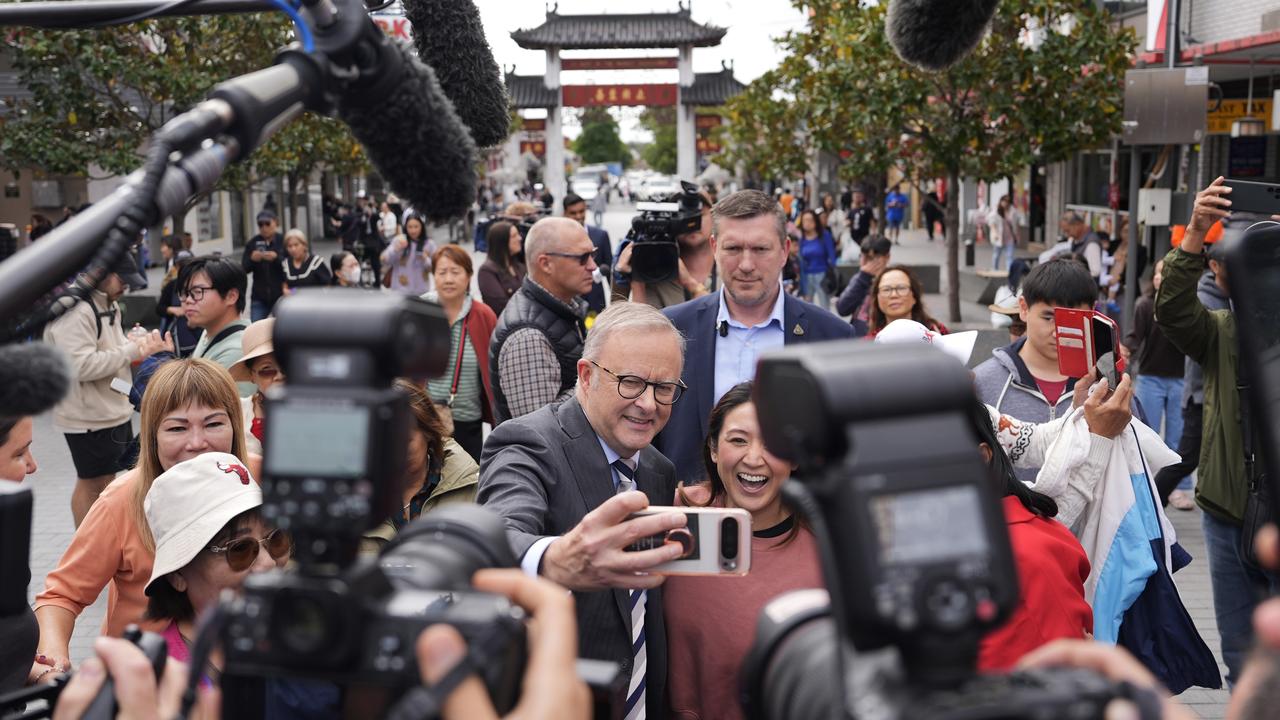Opinion: Matildas soccer stars get it, turning off smart phones ahead of quarterfinal clash with France
The Matildas are marvellous – their skill, teamwork and humility are all to be admired – but now I like them even more, writes Kylie Lang.

Kylie Lang
Don't miss out on the headlines from Kylie Lang. Followed categories will be added to My News.
The Matildas are marvellous – their skill, teamwork and humility are all to be admired – but now I like them even more.
Showing supreme common sense and a laser focus on the task ahead – the most immediate being taking on France this afternoon in the quarterfinals of the FIFA Women’s World Cup at Suncorp Stadium – the Matildas have switched off their smartphones.
These girls get it.
Social media is not only a distraction; it is frequently damaging.
Silencing it is something we all should do from time to time – or forever, some would say.
People for whom phones are a permanent appendage – you know, the ones who walk around looking down as they stumble into things – might be surprised to learn that life doesn’t stop when your phone does.
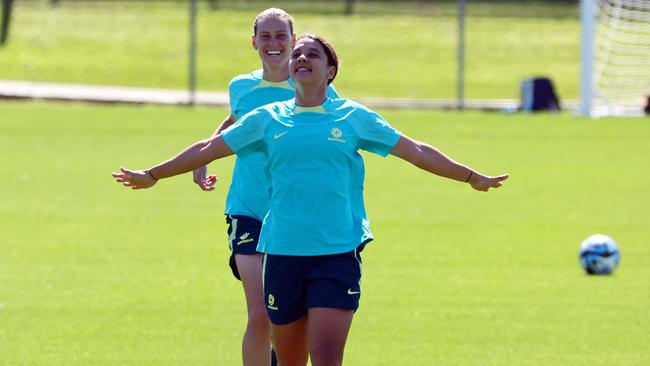
It was after beating Denmark 2-0 last Saturday that questions inevitably surfaced around how the Matildas would “manage the hype”.
Fair enough too. The match drew a TV audience of 3.56 million viewers, more than last year’s AFL and NRL grand finals. There was record attendance at Sydney’s Stadium Australia too – officially 75,784 people – the ninth-largest women’s football crowd anywhere in the world and the highest in this country.
When it comes to hype, it can only get bigger.
Socceroos coach Graham Arnold went as far as saying on Thursday that the fantastic fan support could help carry the Matildas to a historic World Cup final win. Wouldn’t that be wonderful!
But as the team has been preparing for the fight against France, players have been trying to distance themselves from the hype.
Midfielder Emily van Egmond said on Tuesday there was only one certain way to avoid being distracted by intensifying attention.
“You delete social media,” she said.
“We’ve got a great group of girls … as a collective, we’ve done a really, really good job of blocking out the white noise.”
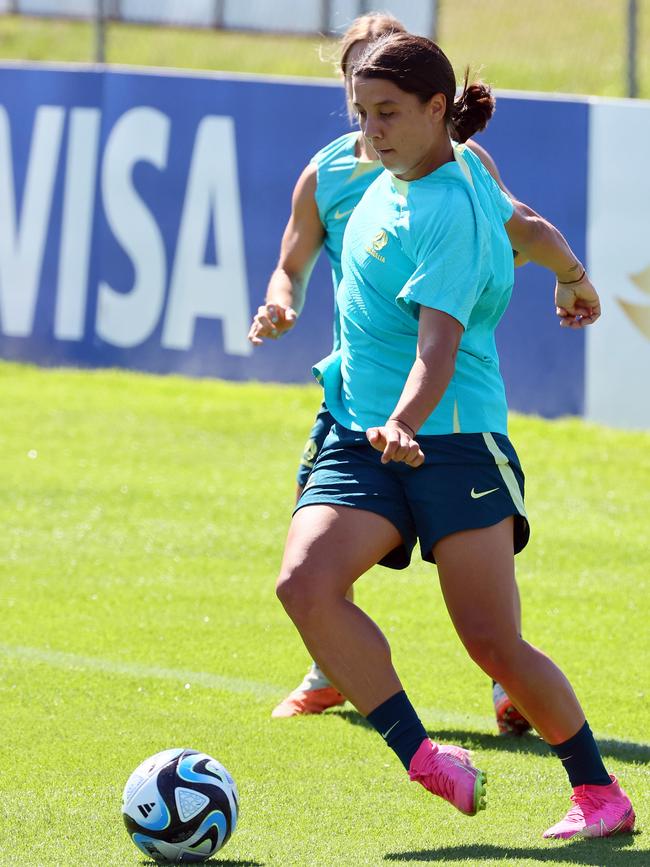
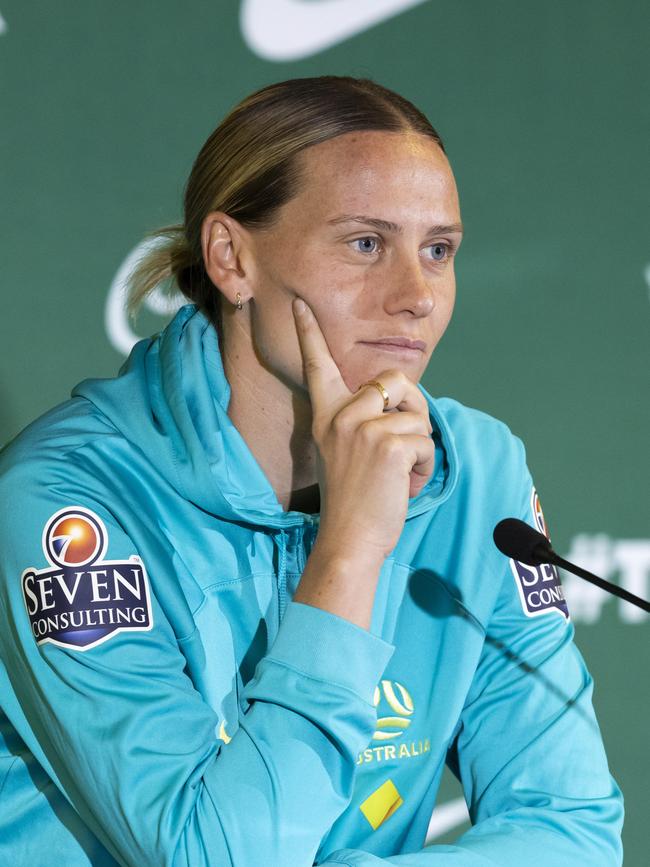
White noise indeed. Research has drawn negative links between social media use and personal motivation.
The comparisons we draw with others – including those “living their best life” (possibly the worst phrase ever) – affect how we feel about ourselves.
A 2021 study from Germany’s Ruhr University found people who consider themselves to be superior to others will not be motivated to strive for greater things – they’re great enough. Others who view themselves as somehow lesser will baulk at self-improvement because, judging themselves against people who appear to be amazing, they feel they’ll always fall short so there’s no point.
The Matildas are not the only athletes to realise, sometimes too late, the damaging influence of social media. At the Commonwealth Games on the Gold Coast in 2018, champion backstroker Emily Seebohm called for warning signs reading, “I didn’t get into my own mind (zone)”, to be erected in the athletes’ village.
Seebohm was referencing an excessive use of social media that dulled her competitive edge before swimming her pet race in the 2012 Olympics and missing a gold medal by a hand touch. Then, pathetically, there are the trolls who feel entitled to attack athletes simply because they can in the free-for-all that is social media. Football in the UK is a notorious red rag to these faceless bullies – and our Matildas would be well aware of this.
All but three of the 23 players are contracted to overseas clubs, with captain Sam Kerr signed by Chelsea, vice-captain Steph Catley and Caitlin Foord by Arsenal, Mary Fowler and Alanna Kennedy by Manchester City, and Hayley Raso by Real Madrid.
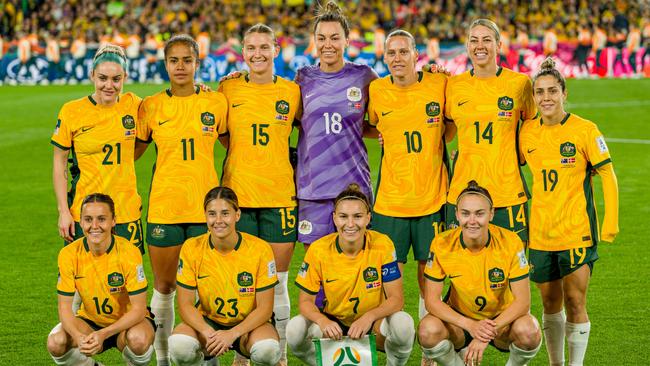
Sports stars are often called role models but they don’t ask for this tag or responsibility society slaps on them. That said, the Matildas are proving to be standouts, inspiring us on so many levels. Whether or not they win against France and advance to the semi-finals is almost an irrelevance when it comes to the positive influence they are having, particularly on kids who, let’s face it, are crying out for decent role models.
The Matildas keep it classy, on and off the field, and make their country proud by giving of their best. As van Egmond said: “We have to remain humble and focused … there‘s no point getting too ahead of yourself because football can be cruel at times.”
So too can life. The more examples young people are given of how to be resilient, persevere under pressure, and celebrate wins and losses with dignity, the better placed they will be for a fulfilling future.
Kylie Lang is associate editor of The Courier-Mail
kylie.lang@news.com.au



